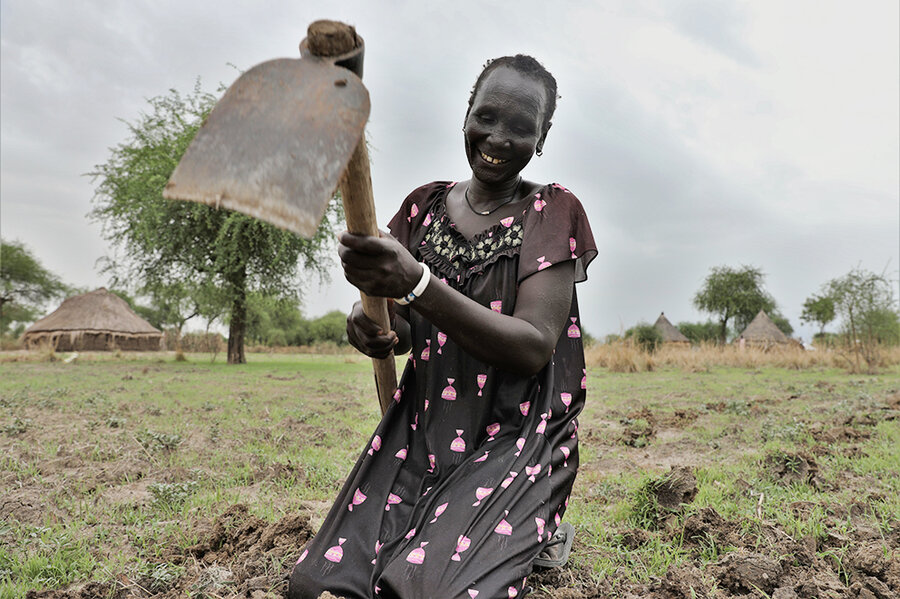
Being able to grow food in Walgak - a town in northeast South Sudan, an area once riddled with conflict - is a dream come true for Sarah. A farming-for-peace initiative, backed by the World Food Programme (WFP), has replaced the crackle of gunfire with the thud of hoes as farmers till the soil.
This is surely the safest that Sarah and her community have felt in a long time. Situated in Jonglei, the country's most isolated and underdeveloped region, Walgak was the scene of political violence and armed conflict for years and because of that, a magnet for jobless young people.
'We are changing the culture of patriarchy'
Now, thanks to the peace initiative, a 3km dyke has been built to protect homes from flooding - turning the area into something of an Eden insofar as the merciless climate crisis will allow.
"Everyone in my village farms together now, young and old, men and women," says Sarah as she strikes the ground. Later, I see her coaching a group of young women on digging through roots and rocks. The community's nominated her to lead its women's group, farming for peace.
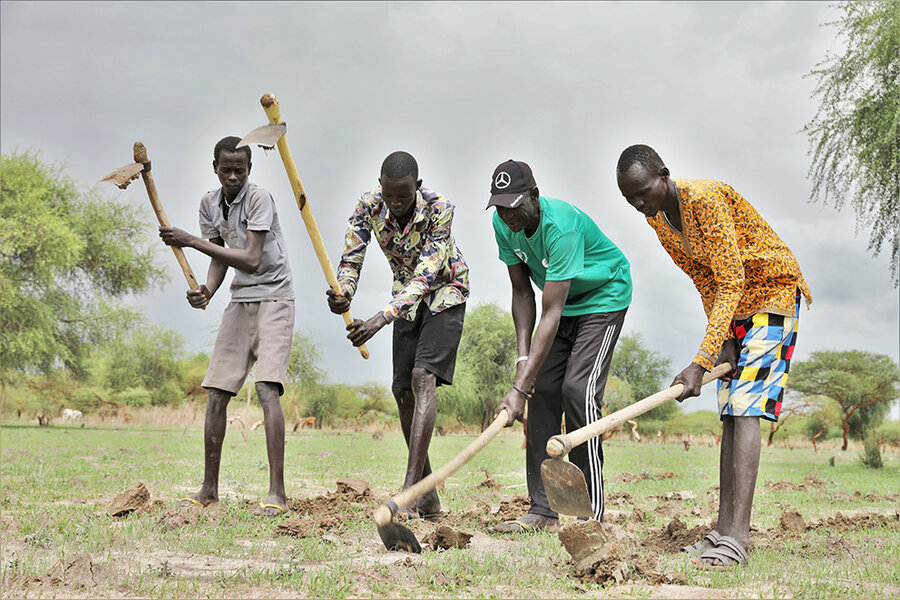
South Sudan's journey to a durable peace is going to be a long one. Violence still rages in large parts of the world's youngest nation, displacing hunger-stricken people already facing the slings and arrows of extreme weather.
While the national peace agreement inches forward, communities in conflict are taking deliberate steps to forge peace with one another through grassroots initiatives supported by the WFP and its partners.
These "bridge gaps in needs by enabling many humanitarians to partner together with communities to stem the drivers of conflict" says WFP's Lawrence Peter, who oversees the Reconciliation, Stabilization and Resilience Trust Fund in Greater Jonglei.
Sarah recalls the time when her town was in upheaval and disarray. Cut off from basic services, and opportunities for residents to generate income, rivalries grew over access to resources such as water, land and livestock. The proliferation of guns, a legacy of the civil war, made the young and unemployed a greater challenge to engage. "If only we had something that could bring us together," she recalls thinking.
Devastating floods that began in 2019 made humanitarian conditions worse in Greater Jonglei. By 2020, three pockets of famine were declared. WFP scaled up humanitarian assistance and combined it with resilience interventions to strengthen communities' ability to cope and recover - such as the multi-partner reconciliation fund, which kicked off in 2021.
"We saw a window, a chance to transform our village and make our lives better," says Sarah, who helped to rally the youth of her community, becoming in the process a voice against violence and crime. Alongside other local leaders and chiefs, the mother of four engaged with youths to help them picture a different future for themselves.
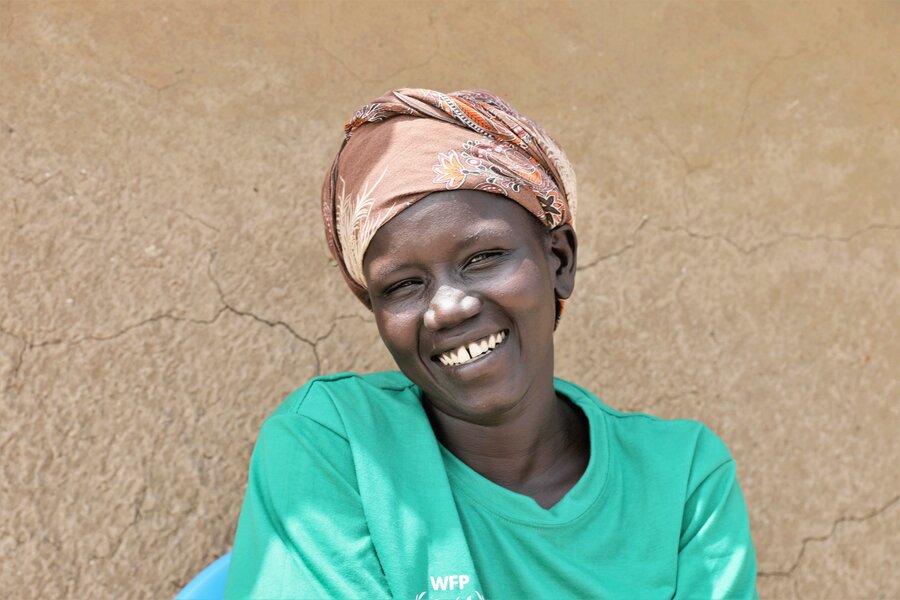
Community discussions began to flourish in Walgak. Conflict resolution sessions, peace dialogues and peace caravans touring the town and adjacent areas have allowed cool heads to prevail on contentious matters. Longtime foes - men, women, young and old - came together to identify the root causes of their conflicts and warning signs.
People were given a chance to express what mattered most to them: improving living conditions, security and engaging young people. Creating meaningful work as well as spreading literacy among young people helps steer people away from violence.
Together, people from different communities are now tilling and planting 1,000 feddans (equivalent to 420 hectares), building the town's dyke, repairing 6km of access roads, and maintaining the peace in the town's public spaces. A workforce of 1,500 community members, including women and youths, have transformed Walgak into a model for the local payams or administrative divisions.
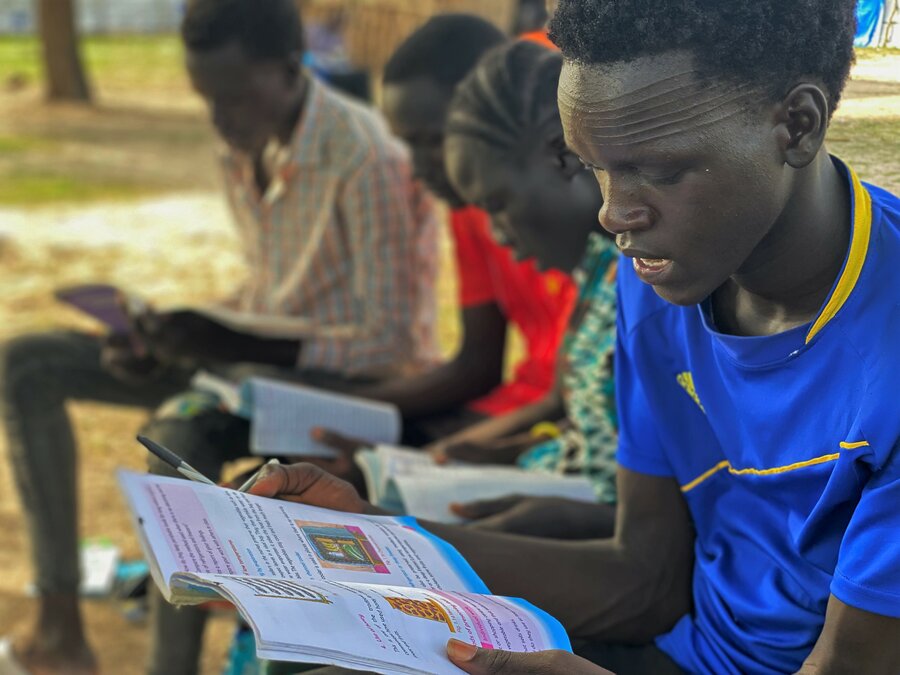
As general violence and conflict died down, efforts turned to stemming violence against women and girls. Women in the community were trained to document and report incidents of gender-based violence to stem the scourge. "We have a lot of work ahead of us," Nyagewa, 29, tells me. "We are changing the culture of patriarchy".
Changing the culture of violence requires raising awareness and creating alternative ways of living. "That takes time," says Nyagewa, who's travelled to neighbouring countries on a peacebuilding and gender-equality exchange programme to share her community's experience and learn from others.
"I tell my daughter she is equal to any boy," she adds. "She has the right to go to school and learn the same as any boy."
Since June, WFP partners working through the trust fund helped the people of Walgak and other communities within the greater Jonglei region trace and recover 50 women and 131 children who had been abducted in past attacks. Those women and children safely returned home and were reintegrated into their communities.
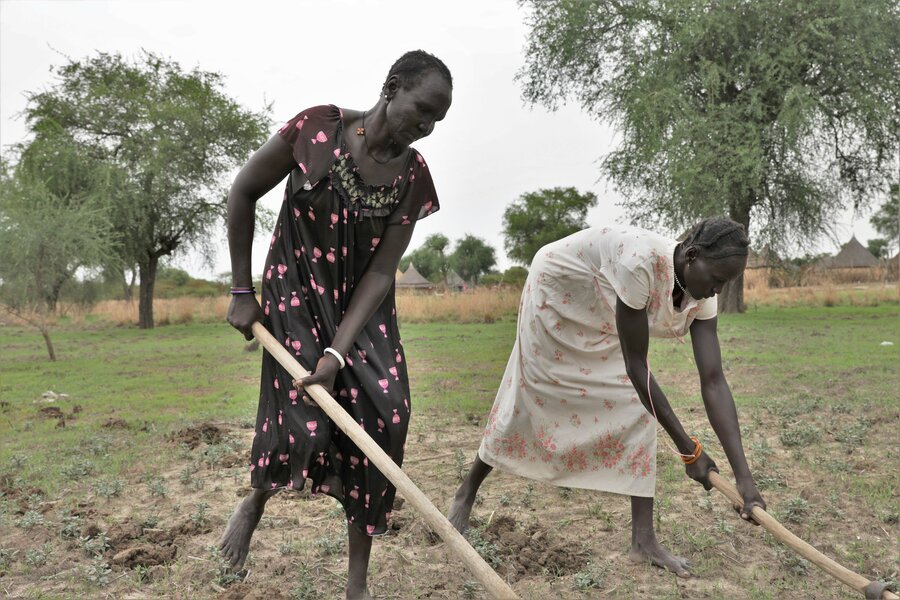
Part of Walgak's success is owed to fund's comprehensive, system-wide approach that weaves together and sequences initiatives and programmes that offer holistic solutions to the underlying issues of marginalization, inequity and decades of conflict-related trauma.
By experiencing and participating in peace dialogues, livelihoods and resilience building projects, rule-of-law training and protection services, the people of Walgak have the rare opportunity to experience, and hopefully maintain, peace.
A man in his 30s who goes by the name of Gatluak and participated in all the projects was startled when people from the nearby villages of Diror, Buong and Barmach would walk hours to reach Walgak to find out how they too could replicate his town's success. "Now, many of us know the value of building peace. We must not take it for granted," he says.






